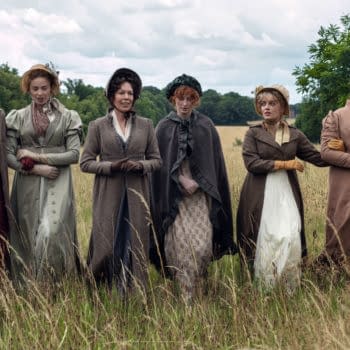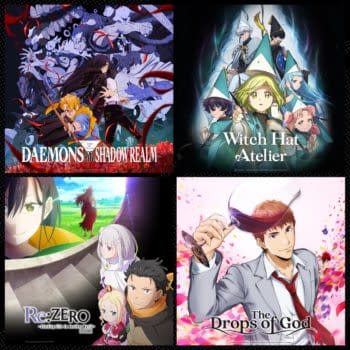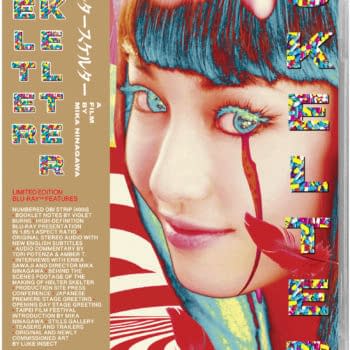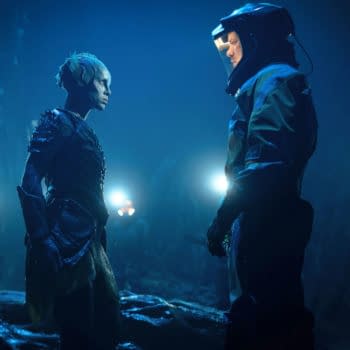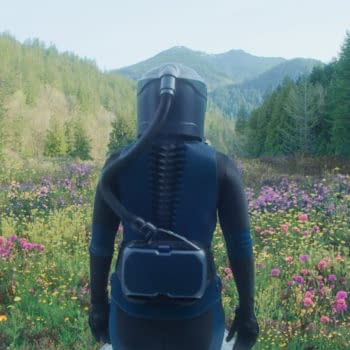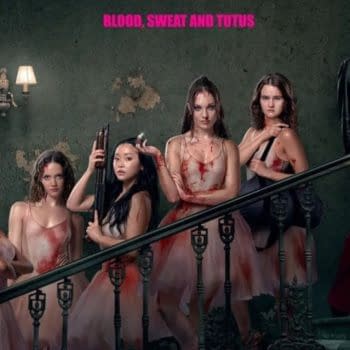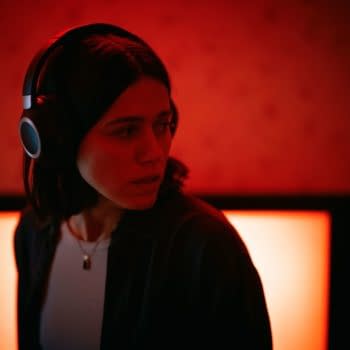Posted in: Film Festival, Movies | Tagged: 1987: when the day comes, film review, nyaff 2018
NYAFF 2018 – '1987: When the Day Comes' Is the Best Movie I've Seen This Year [Review]
![NYAFF 2018 – '1987: When the Day Comes' Is the Best Movie I've Seen This Year [Review]](https://mlpnk72yciwc.i.optimole.com/cqhiHLc.IIZS~2ef73/w:600/h:400/q:75/https://bleedingcool.com/wp-content/uploads/2018/07/1987.-WHEN-THE-DAY-COMES-Non-Official-STILL-2.jpg)
Every country with a major film industry is going to make at least one major historical blockbuster a year. South Korea's entry is an absolute barnstormer. 1987: When the Day Comes is a real epic, a political thriller about the events that led to the eventual overthrow of the fascist dictatorship and ushered in democracy in the country. It might be the best movie in the festival in a lineup of strong entries. It's the best movie I've seen this year.
It starts with the death of a university student during interrogation by cops in the Anti-Communist Bureau. South Korea was still under military dictatorship and the Anti-Communist Bureau, headed by rabid Commie-hating North Korean defector Park Cheo-Won runs the unit practically like a Stasi-style secret police, equally hated and feared by the general populace as they grab activists and demonstrators to brutalise in cells.
With the country on a knife-edge, Park tries to cover up linguistics student Park Jong-Chul's death by ordering it cremated as soon as possible. To do that, his men have to get a prosecutor from the District Attorney's office to authorize it first. However, Prosecutor Choi, who loathes Park and his men's Gestapo tactics, refuses to sign off on the order without the proper procedure of an autopsy first. This sets off a series of chain reactions that would expose the government's attempt to cover up Park Jong-Chul's death by torture and lead to the widespread protests that would lead to the eventual fall of military dictatorship in South Korea.
![NYAFF 2018 – '1987: When the Day Comes' Is the Best Movie I've Seen This Year [Review]](https://mlpnk72yciwc.i.optimole.com/cqhiHLc.IIZS~2ef73/w:600/h:400/q:75/https://bleedingcool.com/wp-content/uploads/2018/07/1987-WHEN-THE-DAY-COMES_Press-Still_04.jpg)
The autopsy meant that Park's family would find out how he died, and from there too many people would know and any cover-up would fail. Choi, a principled hothead disgusted with the regime and with zero shits to give, would resign from the prosecutor's office and make sure the file was leaked the press. From there, news editors and journalists would be so outraged that they begin to ignore government press guidelines and make it their crusade to expose the truth of Park Jong-Chul's death, absolutely determined to get the names of every officer involved, all of whom were under Director Park's orders himself.
![NYAFF 2018 – '1987: When the Day Comes' Is the Best Movie I've Seen This Year [Review]](https://mlpnk72yciwc.i.optimole.com/cqhiHLc.IIZS~2ef73/w:600/h:400/q:75/https://bleedingcool.com/wp-content/uploads/2018/07/1987-WHEN-THE-DAY-COMES_Press-Still_06.jpg)
There's no single hero in the movie as it charts the chaotic chain of actions by people from nearly all walks of life. There are doctors, journalists, activists, monks, Catholic priests, even prison guards who decided enough was enough and did their part to expose the death, bit-by-bit as Director Park and his men get increasingly desperate and brutal in their attempts to cover it up and arrest the leading activists and their network.
Two cops from the Anti-Communist unit are arrested and set up to take the fall for the killing, but a prison guard helps leak the revelation that more cops were involved, and the race is on to make sure the information is made public before Director Park can stop it. The prison guard's niece, apparently a fictional character, is the audience stand-in as someone who tries to stay out of politics but finds herself increasingly politicised as the horrors and costs of the regime hit closer and closer to home. This is democratic movement as Butterfly Effect, where the actions and circumstances of dozens, if not hundreds of people who may not even ever meet, in a series of coincidences, bring about political change on an massive scale.
![NYAFF 2018 – '1987: When the Day Comes' Is the Best Movie I've Seen This Year [Review]](https://mlpnk72yciwc.i.optimole.com/cqhiHLc.IIZS~2ef73/w:600/h:400/q:75/https://bleedingcool.com/wp-content/uploads/2018/07/1987-WHEN-THE-DAY-COMES_Press-Still_01.jpg)
This is a rare example of political thriller and blockbuster epic that Hollywood may not know how to make anymore, or at least not with this level intensity and conviction. Several cast members were activists in real life who were there in 1987, protesting on the front lines, now cast as the bad guys they were fighting back then. Much of the dialogue is said to be verbatim from what was actually said at that time.
Director Jang Joon-Hwan works here in the type of production that takes serious organizational skill, orchestrating a hugely complex script full of moving parts, depicting riots and protests involving hundreds of extras to recreate one of the key defining moments in modern Korean history, without losing focus and keeping the story absolutely clear. This is political filmmaking in the same league of The Battle of Algiers: stirring, passionate and blazing-hot.
1987: When the Day Comes is now available on VOD platforms.




